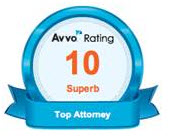If you have overwhelming debt, you may face difficulties paying your bills and may have a lien put on any property that you own. Personal bankruptcy is the answer that will bring a sense of relief to you at a time like this. There are a few different ways for you to file bankruptcy and they vary depending on your financial status.
Bankruptcy is defined as a process through which you can legally declare that you are unable to pay back your debt.
Bankruptcy releases you from the obligation that you have to repay your debts by the force of law. Creditors and debt collectors can no longer hound you for payment. You have to be sure to have all your assets and debts fully accounted for. If you hold back any information, you could end up in trouble with the court. Taking this action will ruin your credit score for a number of years. It can limit your financial options going forward.
Two types of bankruptcy, Chapter 7 and Chapter 13, are for your personal use. There is an avenue for companies and corporations to go through as well, but focusing on the first two is important, especially for you at this time. Chapter 7 is the most common because most people don't have a lot of assets to claim as property when they are in the middle of qualifying for bankruptcy.
Chapter 13 is for people who have a lot of assets and property but find that their income cannot cover all the debt they have acquired.
Talking to an attorney about this is a good idea. You need to know how you can get rid of credit card debt, for instance, and still keep your vehicle and home. He or she can guide you through this process because of the experience that he or she has in this area of law.
Source: FindLaw, "What is bankruptcy?," accessed Nov. 02, 2015








No Comments
Leave a comment